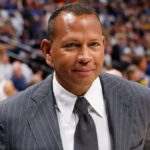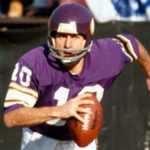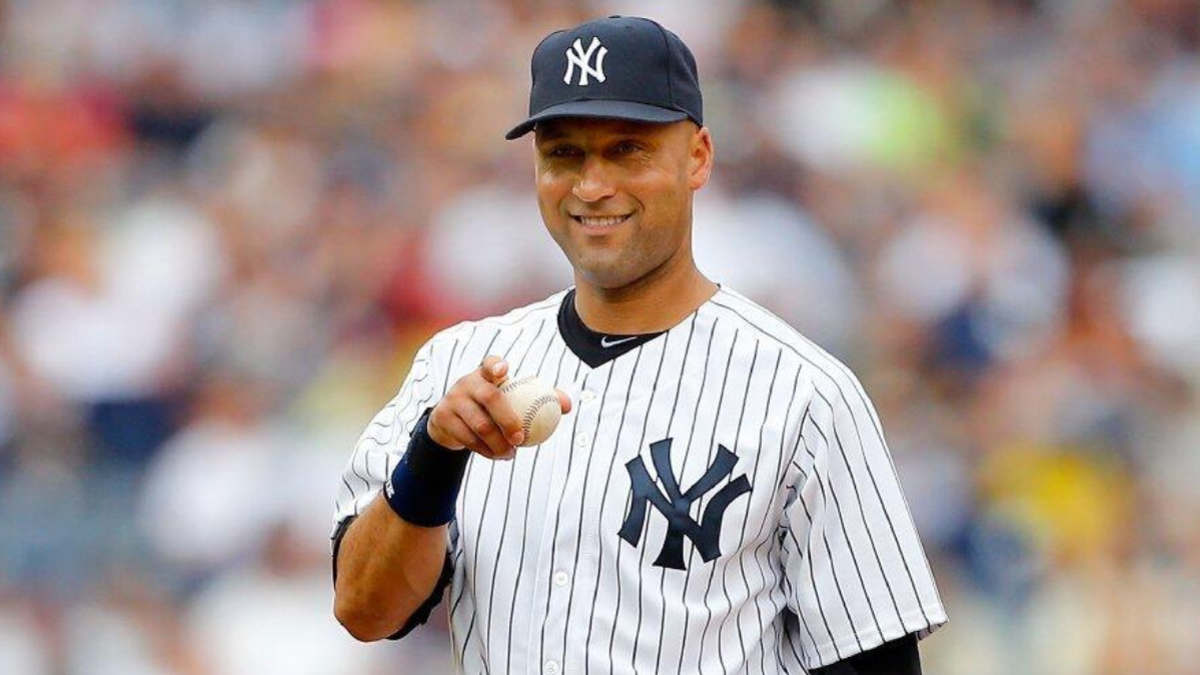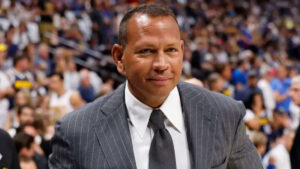Even in retirement, Derek Jeter remains a fixture in the national conversation, not just as a former Yankees captain, but as a symbol of what modern athlete legacy looks like. It’s 2025, and Jeter’s wealth story is more than just a number; it’s a masterclass in how to transition gracefully from the ballpark to the boardroom.
Once known for his consistency at shortstop, Jeter has proven equally steady in the financial world, building a portfolio that blends restraint, ambition, and long-game thinking. While many athletes stumble post-retirement, chasing risky ventures or clinging to fading fame, Jeter has carved a quieter, more deliberate path—one rooted in reputation, smart partnerships, and a refusal to compromise his brand.
What makes his journey so compelling today is how it mirrors broader trends: athletes as entrepreneurs, the fusion of sports and media, and the growing expectation that icons be more than entertainers—they must be businesspeople, too. In an era obsessed with quick wins and viral fame, Jeter’s approach stands apart: disciplined, strategic, and purpose-driven.
This article breaks down how Jeter built—and continues to grow—his fortune. We’ll unpack his peak playing contracts, look into his post-retirement business plays, and compare him to his most iconic peers. More than just numbers, this is a story about legacy, leverage, and the evolution of what it means to win.
The 2025 Snapshot — Derek Jeter’s Net Worth Unpacked
Net Worth in Numbers: What Jeter Is Worth Today
As of 2025, Derek Jeter’s net worth is estimated at $200 million, according to financial analysts and sports business trackers like Forbes and Celebrity Net Worth. But that figure isn’t just a reflection of past salaries or endorsement checks—it’s the result of over two decades of calculated financial moves and brand preservation.
Jeter’s wealth comes from a diversified mix: over $265 million earned during his 20-year MLB career, a lucrative endorsement portfolio, partial team ownership, media ventures like The Players’ Tribune, and long-term investments in tech and sports-related businesses. Some assets, like his stake in the Miami Marlins (which he exited in 2022), have fluctuated in value, while others—such as equity in media platforms and property holdings—are harder to quantify but likely significant.
In short, Jeter’s net worth isn’t static; it reflects a steady, measured approach to wealth-building that prioritizes reputation, privacy, and sustainability over splashy headlines.
What’s New in 2025? Recent Deals and Assets
In 2025, Derek Jeter continues to evolve beyond his baseball roots with a slate of fresh business activity that reinforces his role as a quiet power player in the sports and media world. Most notably, he joined FOX Sports full-time as a lead MLB analyst, a move that not only expands his media presence but also brings him into the living rooms of millions during primetime games—a valuable platform for reinforcing his brand and influence.
On the investment front, Jeter reportedly took a minority stake in a wellness-focused sports tech startup aimed at optimizing athletic performance through AI-powered recovery tools—an emerging niche aligned with his disciplined, health-conscious persona. He’s also rumored to be involved in a new sports ownership group eyeing a Major League Soccer expansion team, signaling a potential return to team leadership on different turf.
While exact figures remain private, these recent moves suggest Jeter is doubling down on longevity plays—opportunities with scalable potential and cultural relevance, not just personal payouts.
A Bronx Tale — Jeter’s Early Career and Rise to Yankees Legend
From Kalamazoo to the Bronx: His Path to the MLB
Long before the bright lights of Yankee Stadium, Derek Jeter was a driven teenager in Kalamazoo, Michigan, waking at dawn to take extra swings in the batting cage his father built. Raised by educators who stressed discipline, humility, and work ethic, Jeter dreamed of playing shortstop for the Yankees—and he said it out loud, even when it sounded impossible. That mix of confidence and character caught scouts’ eyes, leading the Yankees to draft him sixth overall in 1992. But his early minor league days weren’t glamorous; errors piled up, and doubt crept in. Still, Jeter’s refusal to fold set the tone for everything that followed.
Yankees Captaincy and Dynasty Years (1996–2009)
Derek Jeter’s ascent during the Yankees’ late-’90s dynasty was more than athletic—it was cultural. As the team stacked championships, Jeter emerged as its steady, camera-ready heartbeat, earning the captain’s title in 2003. Behind the scenes, his consistency and composure translated into major financial wins, including a 10-year, $189 million contract in 2001, then one of the richest in baseball. But his value wasn’t just in stats; it was in trust. Brands like Nike and Gatorade saw in Jeter a rare mix of star power and credibility, making him a magnet for endorsement deals that matched his on-field leadership.
The Final Seasons and Retirement Payday (2010–2014)
Jeter’s final years in pinstripes weren’t just a farewell—they were a financial crescendo. As his playing days wound down, he inked a three-year, $51 million deal and saw a resurgence in endorsement value thanks to nostalgia-driven campaigns with Gatorade, Nike’s Jordan Brand, and Ford. His 2014 retirement tour became a merchandising juggernaut, with commemorative gear flying off shelves and ticket sales spiking in every ballpark he visited. More than a goodbye, this period was Jeter’s strategic launchpad: a carefully managed transition that amplified his brand, deepened public goodwill, and set the stage for his post-retirement business empire.

The Business Behind the Brand — How Jeter Turned Fame Into Fortune
Sponsorship Deals & Endorsement Power
Derek Jeter wasn’t just a star athlete—he was a brand marketer’s dream. While other players courted controversy or leaned into flash, Jeter’s steady demeanor, clean image, and relentless consistency made him uniquely marketable. Brands like Gatorade, Nike (through its Jordan Brand), Ford, and Gillette saw more than performance stats—they saw trust, longevity, and broad appeal. Jeter endorsed without overexposure, choosing partnerships that aligned with his values and image.
What truly set him apart was his restraint. He didn’t chase every deal; he curated. This selective approach created a premium aura, allowing each campaign—like Gatorade’s emotional farewell tribute—to carry weight. In an era where off-field distractions often defined players, Jeter’s drama-free professionalism made him a rare asset. He wasn’t just selling products; he was reinforcing a legacy of discipline and class, qualities that made brands eager to invest and audiences eager to buy in.
Media Ventures & Publishing (The Players’ Tribune)
In 2014, shortly after hanging up his cleats, Derek Jeter launched The Players’ Tribune—not as a vanity project, but as a calculated response to a media landscape that often-misrepresented athletes’ voices. Frustrated by how quickly headlines could distort narratives, Jeter envisioned a platform where athletes could tell their own stories—unfiltered, emotional, and authentic.
The move was bold for a notoriously private person, but it reflected both vision and market savvy. The Players’ Tribune filled a clear gap between fans and athletes, offering content that blended personal storytelling with digital innovation. It quickly gained traction, attracting contributions from stars across sports and drawing attention from major investors.
Financially, the platform’s real value was in its IP and audience reach—assets that led to its eventual acquisition by Minute Media. But more than profit, the venture cemented Jeter as a forward-thinking media entrepreneur, proving he could lead in the business world with the same poise he brought to shortstop.
Marlins Ownership Stake — A Bold (and Brief) Chapter
In 2017, Derek Jeter made headlines not for a contract, but for a boardroom move: he became part-owner and CEO of the Miami Marlins. Backed by a group led by Bruce Sherman, Jeter held a reported 4% stake and took on day-to-day operations—an unorthodox role for a former player. His motivation was clear: to translate his winning mentality into a front-office culture shift, rebuilding a struggling franchise with discipline and vision.
But running a team proved more complex than fielding one. Jeter faced criticism for slashing payroll and trading away marquee players, including Giancarlo Stanton. Though the moves were financially pragmatic, they bruised public perception. By early 2022, Jeter stepped down and sold his stake, citing strategic differences.
While brief, the Marlins chapter showcased his willingness to take real business risks—not just attach his name to a brand. It added a layer of seriousness to his post-playing résumé and proved he was willing to make unpopular decisions in pursuit of long-term goals.
Post-Retirement Playbook — Jeter’s Empire in the Making
TV Appearances, Commentating & Brand Licensing
Since joining FOX Sports as a full-time MLB analyst in 2023, Derek Jeter has stepped into the spotlight with a new kind of poise—measured, insightful, and unmistakably himself. His on-air tone blends calm authority with just enough charisma, offering commentary that feels earned, not performative. This media presence isn’t just legacy polishing; it’s brand expansion.
Behind the scenes, Jeter continues to license his name for select apparel and memorabilia deals, carefully controlling which products carry his stamp. Whether it’s broadcasting or branding, he’s stayed true to the formula that built his career: show up sharp, speak with purpose, and never overextend.
Philanthropy Meets Finance: The Turn 2 Foundation
Founded in 1996 during his rookie season, Derek Jeter’s Turn 2 Foundation has grown into more than a charitable arm—it’s a core pillar of his brand identity. Focused on youth leadership, academic excellence, and healthy lifestyles, the foundation has awarded over $30 million in grants and scholarships across New York, Michigan, and Florida.
What sets Turn 2 apart is its transparency and longevity. With a well-structured board, audited financials, and consistent community programming, it reflects the same discipline Jeter applied on the field. This isn’t performative philanthropy—it’s a strategic asset that reinforces trust, builds generational goodwill, and deepens the social value behind his financial empire.
Real Estate and Lifestyle Assets
Derek Jeter’s lifestyle portfolio is less about flash and more about intention. His former 30,000-square-foot waterfront mansion in Tampa—dubbed “St. Jetersburg”—was a statement of privacy and scale, later rented by Tom Brady and eventually sold for around $22.5 million. In New York, his Manhattan penthouse reflects a preference for clean luxury in strategic locations.
Unlike peers who collect exotic cars or headline nightlife ventures, Jeter’s assets signal balance: premium, but not excessive. His investments in real estate and understated luxury mirror a larger theme in his financial life—stability, long-term value, and a clear sense of purpose over spectacle.
Also See: Top 50 Richest MLB Players in the World
Comparative Riches — Where Derek Jeter Stands Among Baseball’s Elite
Net Worth Face-Off: Jeter vs. A-Rod, Ken Griffey Jr., and Ichiro
Derek Jeter’s estimated $200 million net worth places him firmly among baseball’s financial elite—but when stacked next to contemporaries like Alex Rodriguez, Ken Griffey Jr., and Ichiro Suzuki, the differences reveal as much about strategy as they do about salaries.
Alex Rodriguez, with a net worth reportedly nearing $350 million, leads the pack. His post-career hustle—real estate empires, fitness brands, and TV deals—has been aggressive and public-facing. Rodriguez embraced entrepreneurship and media with the flair of a mogul, and it’s paid off handsomely.
Ken Griffey Jr., more reserved like Jeter, sits around $90 million, with a mix of early Nike endorsement money and an ongoing role with the Mariners. His more modest portfolio reflects a quieter post-career path, built on legacy and affiliation rather than expansion.
Ichiro Suzuki, beloved globally, is estimated at $180 million, driven by his international appeal and business ventures in Japan. Though not as U.S.-centric in branding as Jeter, Ichiro’s cross-market presence adds longevity to his wealth.
What sets Jeter apart isn’t total dollar dominance—it’s brand consistency. He’s monetized trust and discipline over volume and spectacle. While A-Rod built an empire through bold diversification, Jeter built equity in something arguably more resilient: reputation. His wealth may be more measured, but it’s deeply tied to a narrative of professionalism that continues to pay dividends.
What Sets Jeter Apart Financially?
What makes Derek Jeter’s financial journey remarkable isn’t the size of his fortune—it’s the clarity of it. In a sports world where fortunes are often built on hype, Jeter’s wealth has been built on trust. His spotless public image, deliberate decision-making, and resistance to short-term gains have created a brand with lasting value, both on and off the field.
Unlike flashier contemporaries, Jeter never needed viral moments or loud business moves to stay relevant. His appeal lies in consistency. He didn’t over-leverage his fame, didn’t chase trends, and rarely made endorsements that felt out of character. That restraint—rare in the influencer age—has become an asset of its own.
For rising athletes, Jeter offers a blueprint rooted in brand discipline: choose long-term alignment over short-term cash, let your reputation speak louder than your social media, and know that silence can be a strategy. His fortune wasn’t fast-tracked—it was cultivated. And in a world of instant success stories, that patient, principled approach might be his most valuable lesson of all.

Inside Jeter’s Financial Playbook — Smart Choices That Paid Off
Risk Aversion and Long-Term Vision
Derek Jeter’s financial playbook has always leaned conservative, but never passive. From the start of his career, he made it clear: longevity mattered more than flash. He didn’t chase high-risk ventures or speculative trends. Instead, he invested in what he understood—sports, media, and brand-aligned partnerships—and let time do the heavy lifting.
This patience paid off. Rather than jumping into every hot startup, Jeter waited for ventures that fit his values, like The Players’ Tribune. His strategy wasn’t about being the first to act—it was about being sure when he did. That measured pace gave him both financial stability and brand integrity.
Trusted Team: Agents, Financial Advisors, and Business Partners
Behind Derek Jeter’s smooth financial trajectory is a team that’s just as disciplined as he is. From longtime agent Casey Close—known for negotiating Jeter’s record-breaking $189 million Yankees deal—to financial advisors who kept his investments grounded, Jeter built a circle defined by loyalty and expertise.
He’s rarely surrounded himself with loud personalities or opportunists. Instead, his business ventures, including his Marlins ownership and The Players’ Tribune, were backed by seasoned partners who shared his long-term mindset. For Jeter, trust isn’t just a personal value—it’s a business strategy. His wealth isn’t just well-earned; it’s well-protected by the people he’s chosen to trust.
Investment Strategy in Sports & Tech Sectors
Derek Jeter’s post-retirement investments reflect a clear pattern: he gravitates toward industries he knows and trusts—primarily sports, media, and emerging tech. His launch of The Players’ Tribune was a smart foray into athlete-driven media, while his brief but bold ownership of the Marlins showed an appetite for high-stakes leadership in sports.
More recently, Jeter has shown interest in health-tech startups and performance analytics platforms—ventures aligned with his lifelong focus on discipline and optimization. It’s likely no coincidence. By investing in areas where he holds credibility and personal insight, Jeter blends strategic caution with meaningful, scalable growth.
From the Stands to the CEO Suite — A First-Person Look at Jeter’s Transformation
I still remember watching Derek Jeter’s first at-bat in the Bronx—clean stance, steady eyes, no theatrics. There was a quiet intensity to him, even then. He wasn’t the loudest player on the field, but you could feel he was built for moments that mattered. At the time, no one could’ve guessed that the same calm that won five World Series titles would one day serve him just as well in boardrooms and media studios.
Jeter’s transition from Yankee legend to businessman wasn’t flashy. He didn’t flood social media with announcements or chase splashy investments. He simply shifted. First with The Players’ Tribune, giving athletes the microphone. Then, with the Marlins, he took a shot at reshaping an entire franchise. Some moves landed, others didn’t—but none of them felt out of step with who he was. Even as he navigated TV commentary or startup ventures, the Jeter playbook stayed intact: prepare quietly, move with purpose, and let your actions do the talking.
There’s something admirable in how he’s handled the second act—not as a celebrity clinging to relevance, but as a strategist building something slower, deeper. Watching him evolve, you realize it was never about ego. It was about legacy. From the stands, he looked like a player chasing greatness. From the CEO suite, it’s clear—he was building toward it all along.
What Jeter’s Fortune Says About Modern Athlete Wealth
Derek Jeter’s financial journey reflects a powerful shift in how modern athletes think about wealth: not as a reward, but as a platform. In an era where stars are no longer content with endorsement deals alone, Jeter was ahead of the curve—investing in content ownership, building personal media, and aligning with brands that reinforced his long-term value.
His model foreshadowed today’s athlete-entrepreneur movement, where players like LeBron James and Serena Williams build portfolios that outlast their playing careers. Jeter did it quietly, but with conviction—focusing on control, credibility, and strategic longevity. In doing so, he helped redefine the playbook: stay clean, stay consistent, and think like an owner, not just a performer.
For a generation raised on NIL deals and personal branding, Jeter’s arc proves that legacy is the real currency—and when managed well, it can compound just like any smart investment.
What’s Next for Derek Jeter in the Money Game?
If Derek Jeter’s career has taught us anything, it’s that he doesn’t make moves for attention—he makes them with intention. And while his post-retirement portfolio already includes media, ownership, philanthropy, and broadcasting, the next chapter is wide open—and likely already in motion.
One area ripe for Jeter’s quiet ambition? Global sports investment. With MLB increasingly looking to international markets and Jeter’s measured interest in ownership, a stake in a global sports franchise—whether in soccer, cricket, or even Formula 1—would align with both his brand and strategic style. Another plausible lane is sports tech or wellness innovation, particularly ventures that serve athletes holistically, from performance analytics to post-career planning.
And then there’s the wild card: sports betting. While he’s shown restraint around risky optics, Jeter may yet lend his name—and credibility—to platforms that emphasize responsibility and transparency.
Whatever his next move, it likely won’t be loud. But it will be long-term, smartly aligned, and perfectly on brand. Just like everything else in his playbook.
Nishant is a digital strategist and celebrity finance analyst with over 15 years of experience in SEO-driven content. As Founder of TheNetWorths.com, he creates high-authority profiles on wealth, branding, and cultural influence.

















2 thoughts on “Derek Jeter Net Worth 2025: How “The Captain” Built a $200 Million Empire”